Our Members Asked:
Which "whole food" multivitamins don't include synthetic vitamins? How about Complete Foods, Sunwarrior, Garden of Life, Nature's Brands, and Doctors' Research?
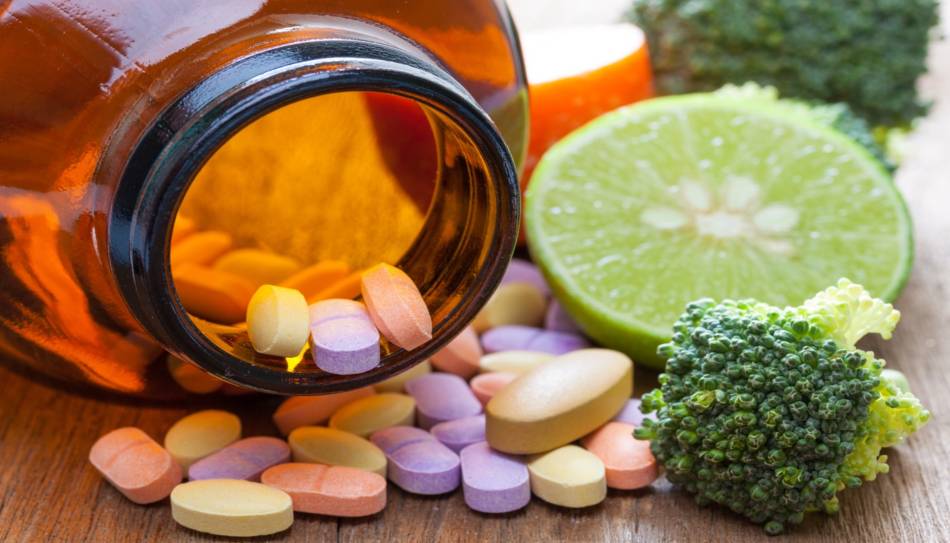
Answer:
If you read labels very carefully, you'll find that most "whole food" multivitamin/multimineral supplements are not exclusively made from "whole" foods (i.e., they contain food extracts or concentrates) and some may contain nutrients not from "foods" but from synthetic sources.
It is particularly interesting to look at the source of vitamin D in these products. Plants do not provide vitamin D, so food-based products needs to include either fish oil (such as cod liver oil), a meat liver extract, or brewer's yeast (Saccharomyces cerevisiae) or lichen (a combination of algae and fungus — which can be eaten if properly prepared) which has been exposed to UV radiation, as these can produce vitamin D
Bear in mind that it's not necessarily clinically important that all of your nutrients come exclusively foods and, in limited situations, it may be better to include a synthetic source. In addition, some "whole foods may be contaminated with heavy metals, as ConsumerLab.com has found (see the Greens and Whole Foods Powders Review). It's also important that products contain the vitamins and minerals they claim. We routinely purchase and test supplements claiming to be from "whole foods" as part of our Multivitamin/Multimineral Supplements Review, so be sure to check the report.
However, if it important to you that you get your nutrients only from whole foods, we have reviewed the labels of products from the brands you mentioned and here are our assessments:
Complete Foods Nutrition-OctoMega Multivitamin:
ConsumerLab.com's label assessment: Appears to be completely food-based
Each OctoMega Multivitamin Multipack packet contains five tablets derived from ingredients such as kelp, wheat grass, sunflower and sesame seeds, and a variety of fruits and vegetables (many, but not all of which are labeled as organic), bone meal and grass fed beef liver, plus capsules containing flax seed and cod liver oil. The label states that it contains no synthetic vitamins, and this seems plausible based on the moderate amounts of vitamins and minerals it provides per packet. For example, it provides 2,950 IU of vitamin A (as beta carotene) (59% of the Daily Value for adults (DV), 36 mg of vitamin C (60% of the DV) and 3.5 mcg of vitamin B-12 (58% of the DV). It does not indicate which food is the source each nutrient, which would be nice to know. It also provides 440 IU of vitamin D3 (110% of the DV) — likely from the cod liver oil.
Sunwarrior Raw Vitamins:
ConsumerLab.com's label assessment: Could be completely food-based, but some label issues
Sunwarrior Raw Vitamins (for him and her) claim to be completely plant-based and free of "synthetics, chemicals, binders or fillers," deriving its vitamins and minerals from a long list of plant-based ingredients (some of which are listed as "organic"). It does not, however, specify the source for each nutrient. These supplements include an enzyme blend and Lactobacillus and Bifidobacterium probiotic strains. For both men and women, a recommended daily serving (three capsules) of Sunwarrior Raw Vitamins provides rather high amounts of vitamins: for example, 5,000 IU of vitamin A (form not specified — 100% of the DV), 50 mg of vitamin B-6 (2,500% of the DV) and 100 IU of vitamin E (665% of the DV). It also provides 800 IU of vitamin D3, however, while the company's website claims that the vitamin D is from lichen, lichen is not listed among the ingredients. Also inconsistent is the fact that the website states that all of the vitamins come "entirely from organic plant sources" but the product labels do not list organic sources for vitamin A and vitamin K2.
Garden of Life-MyKind Organics:
ConsumerLab.com's label assessment: Appears to be completely food-based, although unclear on one ingredient
These multivitamins are available in women's and men's formulas, both of which, according to the website, are derived over 30 fruits, vegetables and herbs. The recommended daily serving of two tablets contains moderate to high levels of vitamins, which are labeled as being derived from the product's certified organic food blend (containing fruits, vegetables and herbs such as broccoli, spinach, lemon, blueberry, curry and holy basil). It also contains 1,000 IU of vitamin D3 from lichen, and 30 mcg of vitamin B-12 (as methylcobalamin) from Saccharomyces cerevisiae (yeast), as indicated on the label. The label also lists 80 mcg of vitamin K as a "K complex with K2 MK-7," but the label does not indicate the source, which could be from natto (fermented soybean), but there are also synthetic forms of MK-7. Both the women's and men's formulas bear the Certified USDA Organic seal.
Nature's Brands PhytoVitamins Multivitamin:
ConsumerLab.com label assessment: Appears to be completely food-based, but low amounts of vitamins and lacking vitamins B-12 and D
The label for this multivitamin indicates that all nutrients are derived from organic, whole foods. The website states it is made from "non-heated, not irradiated whole food organic vitamins" and is "totally isolate and synthetic vitamin free." This suggests that some of the ingredients may be extracts/concentrates of foods. The label bears a seal that it is Certified Organic by QAI (Quality Assurance International) and lists the ingredients as various whole food "blends" and "complexes" such as a "Vitamin and Mineral Whole Food Mix" containing ingredients such as organic sesame, thyme and sunflower, and a "Fruit and Berry Whole Food Complex" containing ingredients such as acerola (cherry) and cranberry. The recommended daily serving of four capsules provides much lower amounts of vitamins than the other brands reviewed here; for example, it provides 145 IU of vitamin A (as beta-carotene), which is only 5% of the DV), 40 mg of vitamin C (67% of the DV), 1 IU of vitamin E (3% of the DV) and just 1 to 2% of the DV for most of the B vitamins. It does not specify which nutrients are derived from which foods and it does not contain vitamin B-12 or vitamin D. It also contains an "Omega Whole Food Blend" from pumpkin and flax seed, although it does not list amounts of omega-3s on the label. The label explains that the low amounts are due to the fact that it not made from "isolate or fermented vitamins" and recommends doubling or tripling the serving size (up to 12 capsules per day) if needed.
Doctors' Research Vitamin-Mineral:
ConsumerLab.com label assessment: Appears to be completely food based
The Doctors' Research website states this multivitamin contains "no synthetic USP nutrients... only foods, food complexes and food concentrates." It also states if contains naturally occurring calcium, magnesium, phosphorus, potassium, trace minerals, carbohydrates, lipids, proteins, monosaccharides and superoxide dismutase" as found in enzymatically processed Saccharomyces cerevisiae, acerola cherry, mixed citrus fruits, carrots, broccoli, cabbage, rice, and aloe vera extracts." The label does not specificy which food provides which nutrient. A daily serving of two tablets provides 100% the DV of most vitamins and minerals you would expect in a multivitamin, although it contains slightly more vitamin C (150% of the DV), more of some of the B vitamins (200% the DV of B-1, 167% the DV of B-2 and 400% of the DV for B-12), and 50% the DV for iron and vitamin K (form not listed). It contains 400 IU of vitamin D, likely from the Saccharomyces cerevisiae.
Join today to unlock all member benefits including full access to all CL Answers and over 1,400 reviews.
Join NowAlready a member? Sign In Here.
Join now at www.consumerlab.com/join/

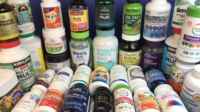
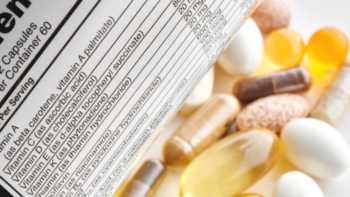
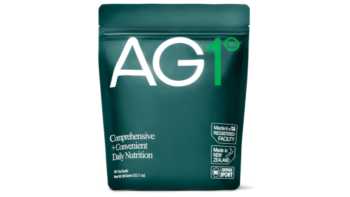
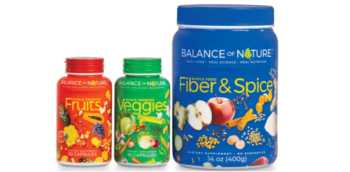
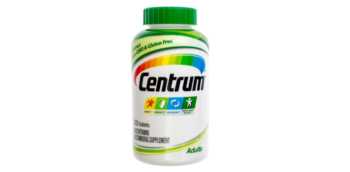
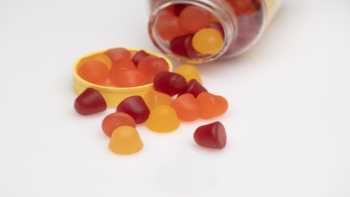
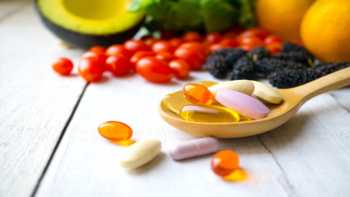






Ann5728
May 13, 2023I take Garden of Life. Once Daily for women.
Jill5729
August 31, 2023I have just begun to take this one as well (was one of the few one-per-day without iodine) — how has it worked for you?
Reply to this post…
Wayne5724
January 01, 2023How important is it to have multivitamins sourced only from "food"?
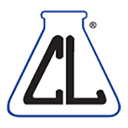 ConsumerLab.com
ConsumerLab.com
January 04, 2023Please see https://www.consumerlab.com/answers/is-it-better-to-get-vitamins-from-foods-or-supplements/natural-vs-synthetic-vitamin/
Reply to this post…
Jeannie5722
August 19, 2022Which Vitamin D is the best?
 ConsumerLab.com
ConsumerLab.com
August 22, 2022Please see our Top Picks for vitamin D in our Vitamin D Supplements Review https://www.consumerlab.com/reviews/vitamin-d-supplements-review/vitamin-d/#toppicks.
Reply to this post…
cypriano5677
December 06, 2015Thanks for the information. Food based meaning algae or bakers yeast is used in the production process ? Also do you trace the raw materials the age,transportation, country of the materials?
Thanks Again.
 ConsumerLab.com
ConsumerLab.com
December 08, 2015Hi Cypriano - Food-based multivitamins contain vitamins and minerals derived from foods such as those listed above (fruits, vegetables, kelp, etc), and/or those that can be derived from algae or produced from yeast. We do not have information about the age, transportation or country of origin of the raw materials used in these supplements; consumers can request this type of information from manufacturers, although they may not necessarily provide it.
Reply to this post…
Daniele5675
December 06, 2015I find this question and answer very informative. I wonder if ConsumerLab would venture to suggest which they consider to be the best choice among them.
 ConsumerLab.com
ConsumerLab.com
December 08, 2015Hi Daniele - Unlike products tested in our Reviews, we only assessed the labels of these products to answer this question. So we are not in a position to say which, if any, are a good choice. However, assuming all were to contain what they claimed without unacceptable contamination, the best choice would be one that provides nutrients which a person is most likely needing. For example, as supplementation with some vitamin D may help many people, look for those that provide it. If you are over 50, look for one that provides vitamin B-12.
Reply to this post…